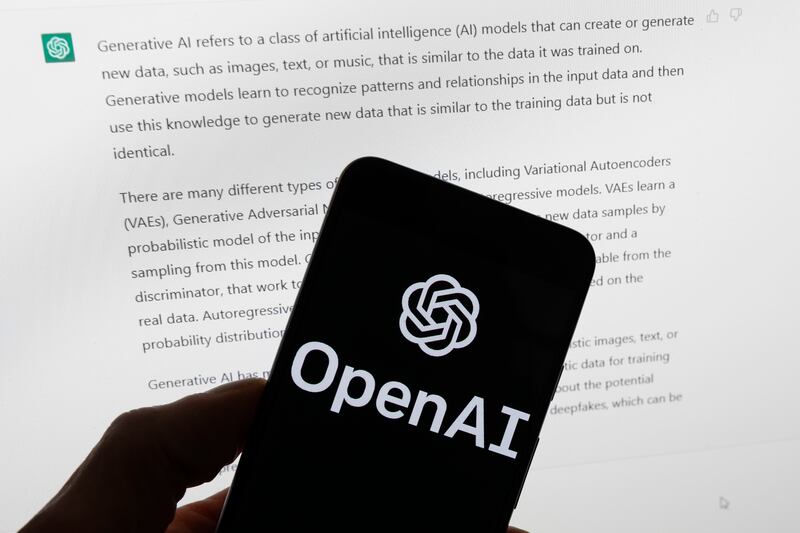Vice President Kamala Harris met with leaders from four major tech companies on Thursday to discuss issues related to emerging artificial intelligence tools.
Ahead of the meeting, the White House announced a series of AI-related actions aiming to “promote responsible American innovation in AI and protect people’s rights and safety.”
Harris and a group of administration officials met with the CEOs of Google, Microsoft, ChatGPT creator OpenAI and AI developer Anthropic as artificial intelligence-driven tools continue to drive both excitement and concern over future applications.
According to a brief shared with press outlets ahead of the meeting, “This will be a frank conversation, where administration officials will share their concerns about AI-related risks, emphasize the importance of companies driving responsible innovation with appropriate safeguards, and discuss the work ahead to ensure the American people benefit from AI advances, while being protected from its harms.”
Earlier this week, scientist Geoffrey Hinton, who spent decades researching and developing digital neural networks that have helped lay the groundwork for AI tools like ChatGPT and Bard and is widely considered the “Godfather of AI,” shared his concerns about AI-based systems becoming too advanced to be effectively controlled.
ChatGPT owner OpenAI and other AI developers use large language model systems to “educate” their chatbots by processing massive amounts of curated text-based information from the internet that enable the platforms to generate humanlike responses and expound on a wide range of topics.
The nature of these systems, Hinton said, could also result in the bots learning enough to outmaneuver the humans that developed them.
“They’ll be master manipulators because they’ll have learned that from us by reading everything on the web,” Hinton told The World. “Will they have their own goals and want to manipulate people to achieve their own goals or will we somehow be able to control them to help us?
“How do you control something that’s more intelligent than you? It’s very, very difficult to do that.”
Thursday’s AI-related announcements from the White House include:
- $140 million to stand up seven National AI Research Institutes across the country that will support responsible AI research and development that advances the public good, bolsters America’s AI R&D infrastructure and helps build a diverse AI workforce.
- A commitment by leading AI companies to participate in an independent public assessment of generative AI systems to explore how they align with the administration’s Blueprint for an AI Bill of Rights and AI Risk Management Framework. This is the first public assessment of these models, and will be done in a way that responsibly discloses any issues discovered to the companies so they can be fixed.
- Forthcoming policy guidance from the Office of Management and Budget to ensure the U.S. government is leading by example on mitigating AI risks and harnessing AI opportunities.
Last October, the White House Office of Science and Technology Policy released an outline for a potentiaI AI Bill of Rights it described as “a set of five principles and associated practices to help guide the design, use, and deployment of automated systems to protect the rights of the American public in the age of artificial intelligence.”
In April, President Joe Biden said it remains to be seen whether AI is dangerous but underscored that technology companies had a responsibility to ensure their products were safe, per a report from Reuters. Social media had already illustrated the harm that powerful technologies can do without the right safeguards, he said.
Harris said in a statement after the closed-door meeting that she told the executives that “the private sector has an ethical, moral, and legal responsibility to ensure the safety and security of their products,” per The Associated Press. The message was also that they can work together with the government.


